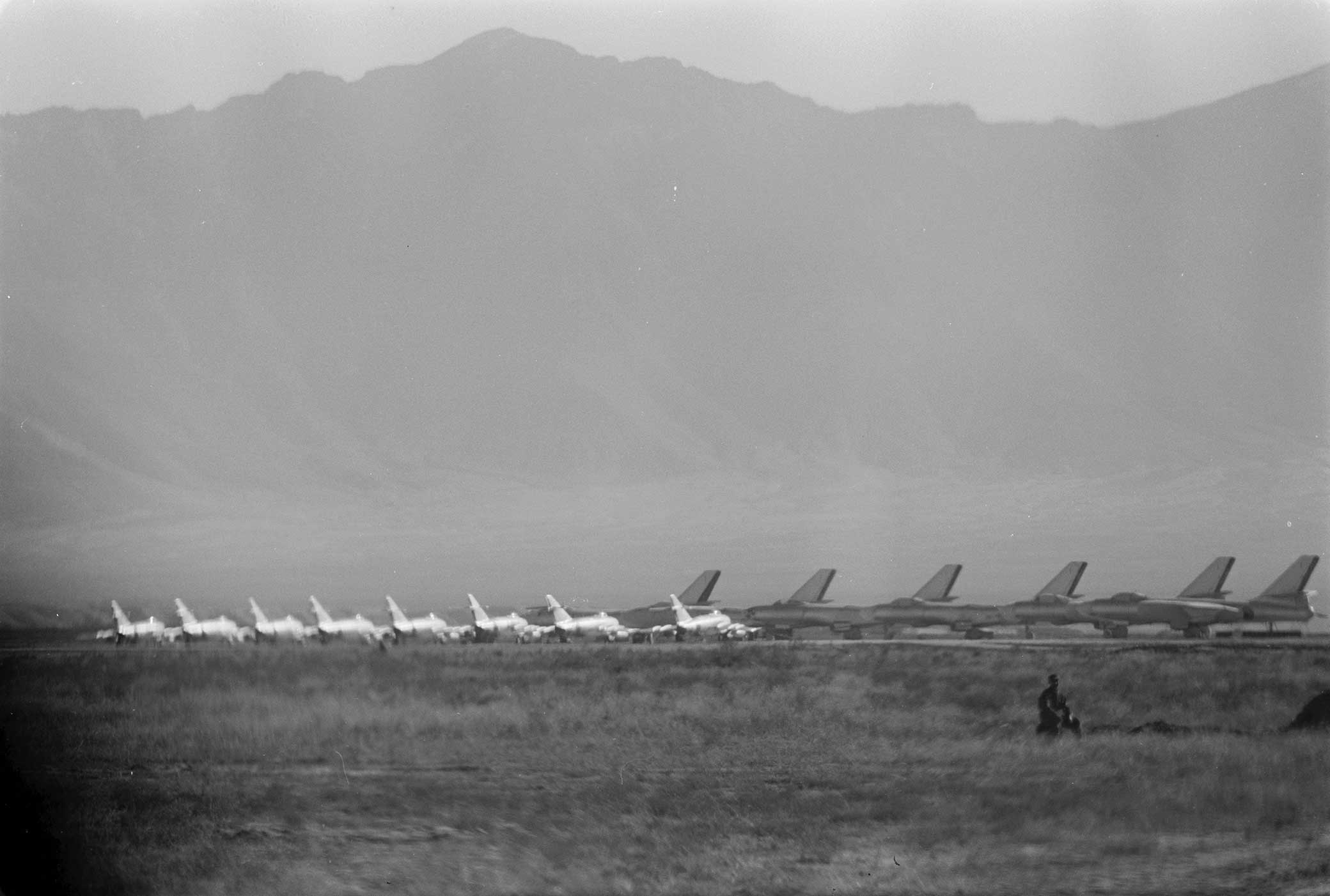
Rows of airplanes on an airfield in Kabul, Afghanistan, 1959. Photograph by Thomas O’Halloran. Library of Congress, Prints and Photographs Division.
• “Historically, the reforms that have been adopted to make war more humane have not been born from the goodwill of states or the elite or the military. They were adopted due to fears of public relations fiascos, persistent pressure from antiwar movements, and whistleblowers who leaked images and details about atrocities in our name. It is no coincidence that these elements of civic life have also become criminalized over the past twenty years. Activists are surveilled, journalists’ records are subpoenaed, whistleblowers are tried, protesters are jailed. Lawfully.” (The American Prospect)
• “The claim that the United States is ‘a nation of immigrants’ is the benevolent version of U.S. nationalism. The ugly underside is the panic of enemy invasion.” (Boston Review)
• Meet Lady Wroth, the first English woman to become a novelist. (Smithsonian)
• “Human remains in tomb are best-preserved ever found in Pompeii.” (The Guardian)
• Revisiting Wired Style: Principles of English Usage in the Digital Age. (Slate)
• On protest photography. (Hyperallergic)
• “The truth is we have no historical precedent for the moment we’re in now. We need to stop thinking back to 1918 as a guide for how to act in the present and to start thinking forward from 2021 as a guide to how to act in the future.” (TheAtlantic.com)
• “Smithsonian Acquires Rare Photographs from the First African American Studios.” (New York Times)
• This week in obituaries: Nanci Griffith, Maki Kaji, Eloise Greenfield, Hiro, Glen Ford, Joe Galloway, Janice Mirikitani, James C. Hormel, Shirley Fry, Leon Litwack, Ellen Havre Weis, Otelo Saraiva de Carvalho, Donald Kagan, Frank Torres, Gerd Müller, Joe Walton, Una Stubbs, Colette O’Neil, and Michael Thomas.